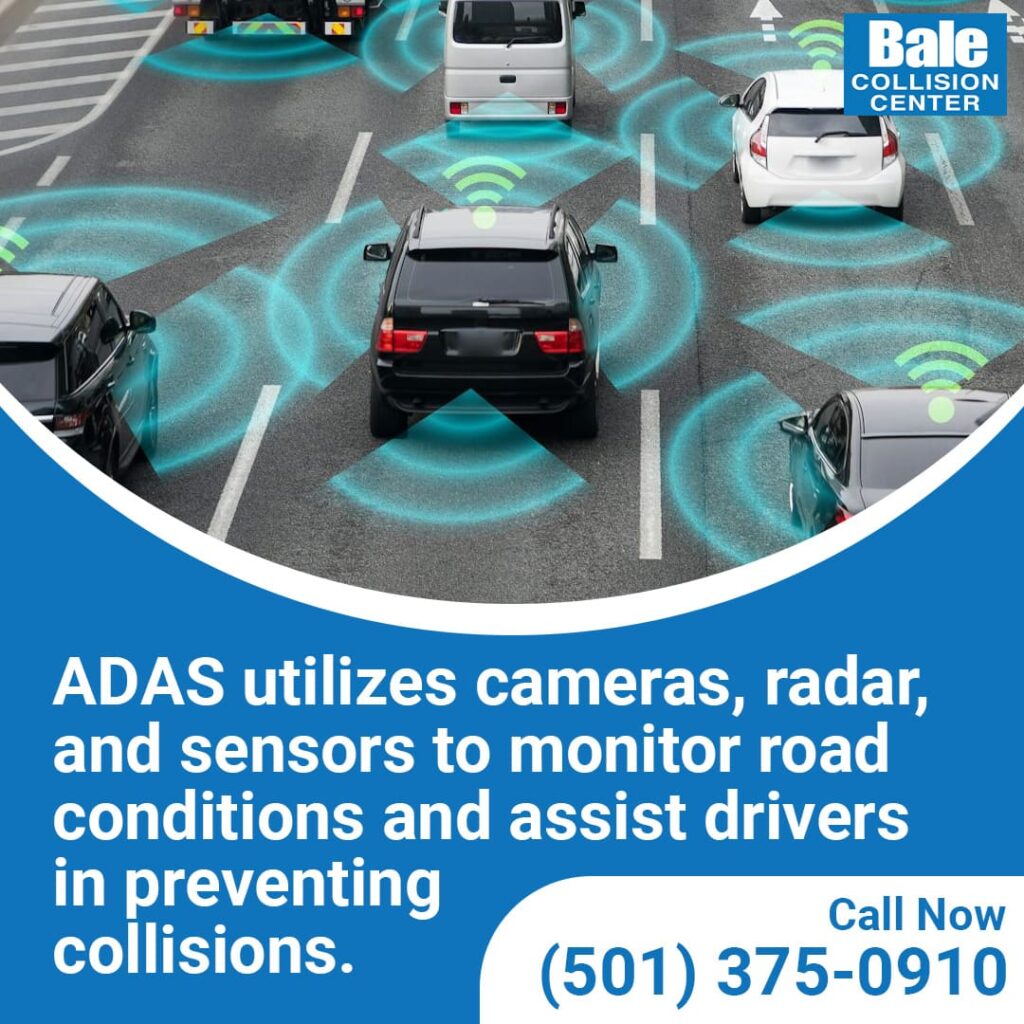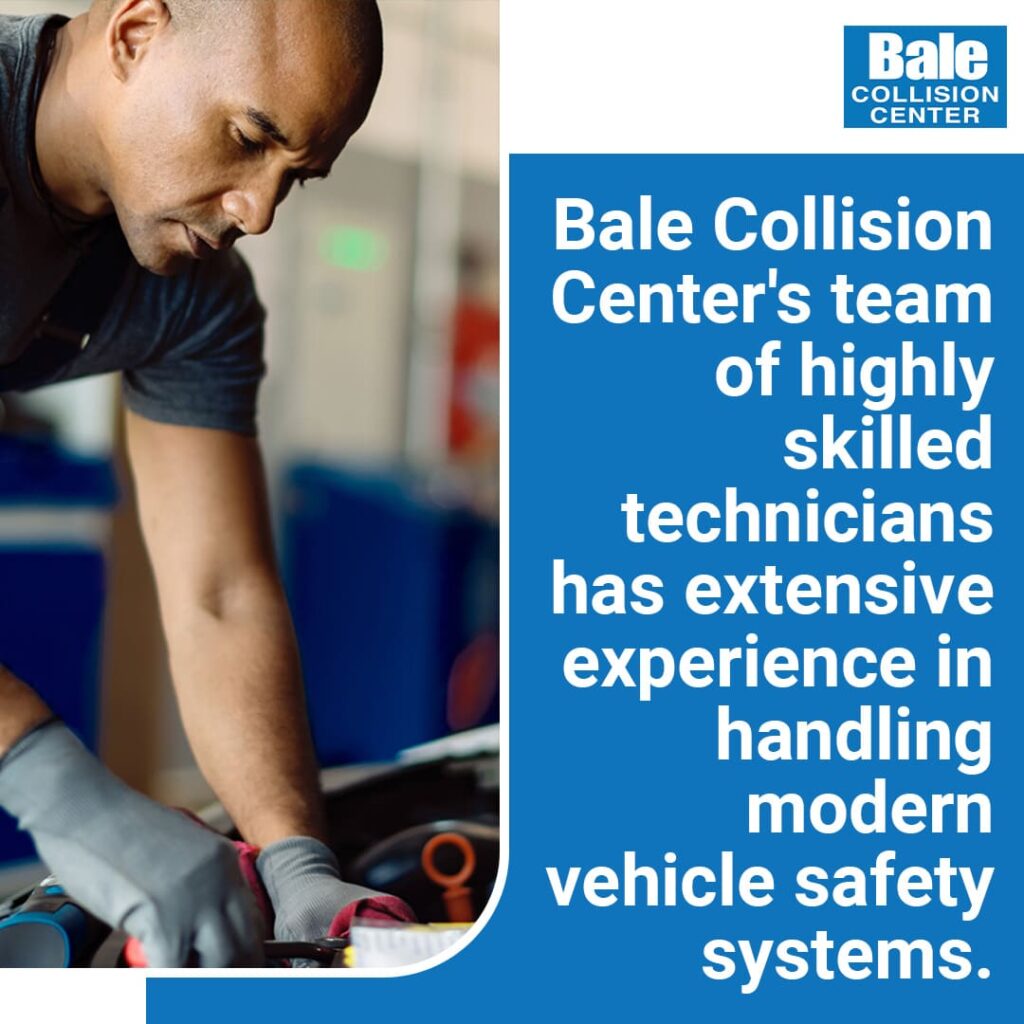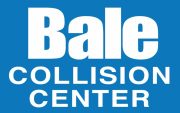ADAS calibration is necessary after a collision to restore critical safety features. Even minor accidents can misalign sensors and cameras, affecting functions like lane departure warnings, adaptive cruise control, and automatic braking.
Modern vehicles rely on Advanced Driver Assistance Systems (ADAS) to enhance safety and improve driving precision. These systems use sensors, radars, and cameras to detect obstacles, monitor lanes, and prevent collisions. Even a small impact can disrupt these components, leading to incorrect readings and potential safety risks.
Proper ADAS calibration is necessary to make sure that all safety features function as intended. Skipping this step can lead to inaccurate warnings or failure to detect hazards, which can increase the risk of accidents. Therefore, it is essential to get the ADAS recalibration done at an auto body collision shop that specializes in it to restore vehicle safety.
At Bale Chevrolet Collision Center, we specialize in ADAS calibration and precision collision repairs in Little Rock, AR. Our trained technicians use advanced diagnostic tools to make sure your vehicle’s safety systems function correctly after an accident.

Understanding ADAS and Its Role in Vehicle Safety
What Is ADAS?
Advanced Driver Assistance Systems (ADAS) help drivers avoid accidents by using sensors, cameras, and radar to monitor road conditions. These systems enhance vehicle safety by detecting obstacles, maintaining safe distances, and assisting with driving functions.
Modern vehicles are equipped with ADAS to reduce human error and improve driving accuracy. Precise calibration of these systems is essential. Even slight misalignments after a collision can lead to delayed responses or false alerts, so auto body collision shops must perform accurate recalibration before returning a vehicle to the road.
Common ADAS Features in Modern Vehicles
ADAS includes features that assist with braking, steering, and visibility to improve road safety. Some of the most common systems found in today’s vehicles include:
Lane Departure Warning (LDW) and Lane Keeping Assist (LKA): Detect when a vehicle drifts from its lane and provide alerts or steering adjustments.
Adaptive Cruise Control (ACC): Maintains a safe following distance by adjusting speed automatically.
Automatic Emergency Braking (AEB): Applies brakes if a collision risk is detected.
Blind Spot Monitoring (BSM): Warns drivers of vehicles in their blind spots.
Rear Cross-Traffic Alert (RCTA): Detects approaching traffic while reversing.
These systems depend on properly calibrated cameras and sensors. At Bale Collision Center, we offer recalibration services to make sure they function correctly.
How ADAS Enhances Driver and Passenger Safety
ADAS helps reduce accidents by providing real-time alerts and automatic adjustments. These systems support drivers by detecting potential hazards and responding faster than human reflexes.
For example, forward collision warning (FCW) and automatic emergency braking (AEB) can prevent rear-end collisions by detecting sudden stops and applying the brakes if the driver doesn’t react in time. A comprehensive study by the Partnership for Analytics Research in Traffic Safety (PARTS) analyzed data from 98 million vehicles and 21.2 million crashes, revealing that AEB systems reduce rear-end crashes by approximately 50%.
Similarly, lane departure warning (LDW) and lane keeping assist (LKA) reduce the risk of drifting into another lane, especially on highways. Blind-spot monitoring (BSM) and rear cross-traffic alert (RCTA) help prevent side-swipe and backing-up accidents by warning drivers of unseen vehicles.
However, after a collision, even minor misalignment of sensors can lead to system errors. That’s why recalibration at a trusted collision repair shop is essential.
Sensors, Cameras, and Radar: Key Components of ADAS
ADAS relies on a network of sensors, cameras, and radar to detect objects, measure distances, and assist with driving tasks. Cameras provide a 360-degree view and detect lane markings, pedestrians, and traffic signs. Radar sensors measure the speed and distance of surrounding vehicles, enabling features like adaptive cruise control. Ultrasonic sensors help with parking assistance by detecting obstacles at low speeds.
These components work together to enhance safety, but they must be accurately positioned. After an accident, ADAS calibration makes sure these systems function correctly and prevent false alerts or system failures. At Bale Collision Center, a trusted collision center in Little Rock, AR, we provide expert calibration services to restore ADAS accuracy.
Why ADAS Calibration Is Necessary After a Collision
The Impact of a Collision on ADAS Functionality
Sensors, cameras, and radar must be positioned precisely to function correctly. Any impact, even a small one, can shift them slightly, affecting how the system detects and responds to road conditions. For instance, a front-end collision can misalign radar sensors responsible for adaptive cruise control and cause incorrect distance measurements. A minor bumper hit may affect parking sensors, making them unreliable. A side impact can shift cameras used for lane departure warning, preventing them from accurately detecting lane markings. Without proper calibration, these issues may compromise driver and passenger safety. Therefore, professional auto collision repair must include ADAS calibration to restore these systems to their original condition.
Signs That ADAS Needs Calibration
Dashboard warnings and unusual driving behavior often indicate possible ADAS issues. After a collision, the system may detect misalignment and display error messages. The most common signs include ADAS warning lights or system failure messages on the dashboard. Steering may pull to one side, even if wheel alignment appears normal.
Lane departure warning or blind spot monitoring may not function correctly, increasing the chances of unintended lane changes. Adaptive cruise control may also brake at the wrong time or fail to maintain a safe distance from other vehicles. If any of these issues occur, the vehicle should be taken to a certified auto body collision shop, such as Bale Collision Center, for professional ADAS calibration.
When Should ADAS Be Calibrated?
ADAS calibration is required after a collision, windshield replacement, or sensor adjustment. Whenever a vehicle is involved in an accident, whether it’s a fender bender or a more serious crash, calibration is necessary to make sure the sensors are working correctly. Replacing a windshield can also affect ADAS functionality, as front-facing cameras are often mounted behind the glass. If the suspension, tires, or wheel alignment are adjusted, recalibration is required as the sensors’ angles can change. Any repairs or replacements involving ADAS components should be followed by calibration to maintain the system’s accuracy.
At Bale Collision Center, our precise ADAS calibration services in Little Rock, AR, provide expert restoration of vehicle safety systems. Our certified technicians use advanced equipment to align sensors accurately, not just after collision repairs but also after any repairs or replacements that can affect the ADAS components. Proper calibration guarantees that ADAS features operate as intended, giving drivers confidence in their vehicles’ safety systems.
The ADAS Calibration Process at Bale Collision Center
How ADAS Calibration Works
ADAS calibration involves adjusting and realigning sensors, cameras, and radar. Static and dynamic are the two main types of calibration. Static calibration is performed in a controlled environment, where the vehicle remains stationary while technicians use specialized equipment to recalibrate the system. This method is often required for front-facing cameras and radar sensors. Dynamic calibration requires the vehicle to be driven under specific conditions while connected to diagnostic tools that fine-tune the system in real time.
At Bale Collision Center, our ADAS trained technicians use manufacturer-approved calibration equipment to restore ADAS functionality. Precision is essential, as even a slight misalignment can cause safety features like adaptive cruise control, lane departure warning, or automatic emergency braking to fail.
Why Professional Calibration Matters
Professional calibration makes sure that the ADAS functions as intended. Driving with an improperly calibrated ADAS system can create serious risks. A misaligned system may misinterpret surroundings, fail to detect hazards or activate safety features at the wrong time. For example, a faulty forward collision warning could either fail to alert the driver or activate unnecessary braking, increasing the risk of an accident. Blind spot monitoring that isn’t calibrated correctly may not detect nearby vehicles, leading to unsafe lane changes.
At Bale Collision Center, our certified technicians follow manufacturer guidelines to guarantee accuracy. Our collision repair center in Little Rock, AR, uses advanced diagnostic tools and precise measuring systems to align sensors properly. The expertise of our technicians ensures that every vehicle meets safety standards before returning to the road.
How Bale Collision Center Provides Accurate Calibration
At Bale Collision Center, ADAS calibration is a detailed process designed to meet strict safety standards. Our trained technicians use advanced scanning tools to identify misalignments and adjust the system accordingly. Every calibration follows manufacturer specifications to ensure accuracy.
After calibration, vehicles undergo post-calibration testing to verify that ADAS features function correctly. This includes checking system responses, running diagnostics, and performing test drives when necessary. Our collision repair center in Little Rock, AR, combines the latest technology with experienced professionals to deliver precise ADAS calibration, ensuring vehicles remain safe and road-ready.

Why Bale Collision Center is the Best Choice for ADAS Calibration in Little Rock, AR
Expertise in ADAS Calibration
ADAS calibration requires in-depth knowledge of modern vehicle systems, and Bale Collision Center has a team of highly trained technicians with extensive experience in this field. Our technicians understand the precise requirements for recalibrating sensors, cameras, and radar according to manufacturer specifications. Many vehicles have different calibration needs based on their make and model, and the professionals at our collision repair center in Little Rock, AR, have the expertise to calibrate each system accurately.
Precision Equipment and Technology
Advanced driver assistance systems depend on precise calibration to function correctly. At Bale Collision Center, our auto collision repair technicians use the latest diagnostic tools and specialized equipment designed specifically for ADAS recalibration. Our tools detect even the slightest misalignment, ensuring that all safety systems work as intended. Whether performing static calibration in a controlled environment or dynamic calibration on the road, our process guarantees accuracy. The level of precision restores vehicle safety after collision repair and allows drivers to rely on their ADAS features with confidence.
Commitment to Safety and Quality
Every vehicle serviced at Bale Collision Center undergoes a thorough inspection to confirm that its ADAS features are operating correctly. As a misaligned system can cause serious safety risks, our technicians follow strict protocols to meet industry and manufacturer standards. Before returning a vehicle to its owner, we conduct post-calibration testing to verify system accuracy. This commitment to quality makes sure that drivers can trust their vehicle’s safety features after a collision.
Trusted by Drivers in Little Rock, AR
With a strong reputation for ADAS calibration and collision repairs in Little Rock, AR, Bale Collision Center is a trusted name among drivers. Our dedication to precision, safety, and customer satisfaction sets us apart. Whether handling minor repairs or full recalibration after a major collision, our collision repair team provides reliable service backed by years of experience. Customers choose our collision repair center in Little Rock, AR, for ADAS recalibration because they know their vehicles will be restored to factory safety standards with expert care.
ADAS Calibration After a Collision
ADAS calibration is essential for restoring vehicle safety after an accident. Driving with an uncalibrated system increases the risk of malfunction, making professional calibration a necessary step in the collision repair process.
At Bale Collision Center, our experienced technicians use advanced equipment to calibrate precisely according to manufacturer standards. Our commitment to quality and safety helps drivers regain confidence on the road after collision repairs in Little Rock, AR. Whether your vehicle needs ADAS calibration, auto collision repair, or other services, schedule an inspection at our auto body collision shop to maintain safety and performance.
Make sure your ADAS system is working correctly after a collision. Trust our experts at Bale Collision Center for professional calibration and collision repairs in Little Rock, AR. Call (501) 375-0910 or email bccdowntown@baleautomotive.com to schedule an appointment today.
